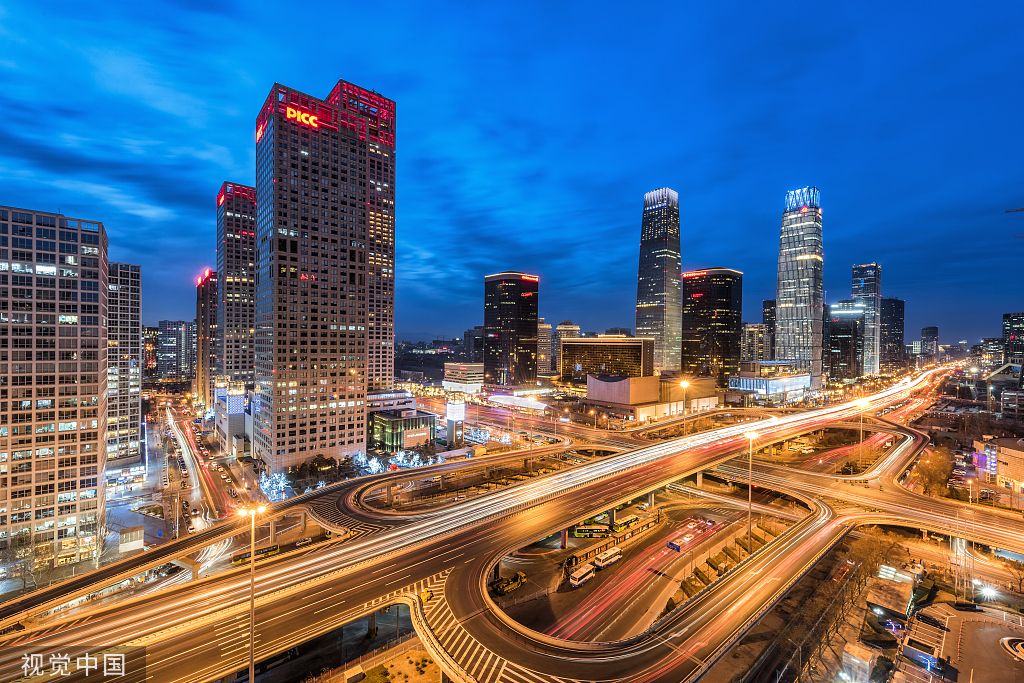Beijing's regional economy rises dramatically in 70 years
Beijing's GDP has soared from 280 million yuan 70 years ago when the People's Republic of China (PRC) was founded to more than 3 trillion yuan, with the city's per capita GDP exceeding 140,000 yuan, which is equivalent to the average of high-income countries and regions.
Beijing's GDP has soared from 280 million yuan 70 years ago when the People's Republic of China (PRC) was founded to more than 3 trillion yuan, with the city's per capita GDP exceeding 140,000 yuan, which is equivalent to the average of high-income countries and regions.

Undated photo shows Beijing at night. [Photo/VCG]
This information was released by Beijing Mayor Chen Jining at a press conference of the State Council Information Office on Thursday.
During the 70 years since the founding of the PRC, the earning power of Beijing people have improved dramatically. Per capita disposable income of the city's residents has increased from 200 yuan to 62,000 yuan; and consumer spending has increased 100-fold, with spending on services making the biggest jump; and average life expectancy has increased from 52.8 years to 82.2 years.
As Beijing increases its education quality, residents are now receiving 12.5 years of education, an increase of 7.2 years. Beijing also boasts about 860,000 college students on campus, with some of the colleges listed as "Double First-Class Universities" (a new program for developing key universities). Apart from that, Beijing has built a social security network that covers both urban and rural residents, with its medical expertise and services leading the country.
People in Beijing are enjoying more housing benefits from their per capita housing space, which has risen more than five times since 1978. They live and work in harmony and stability, making Beijing one of the safest cities worldwide.
According to Chen, Beijing's metro system has covered a length of 636.8 kilometers, turning the Chinese capital from a city on horsebacks to a city on rails. Its sewage system has also improved a lot, with a 93.4% sewage treatment rate.
Beijing has made leaps in deepening opening-up, with 100 million people going through its airports. It houses the headquarters of 56 of the world's top 500 enterprises and of numerous international organizations such as the Asian Infrastructure Investment Bank, turning the eyes of the world toward the city, Chen said.

